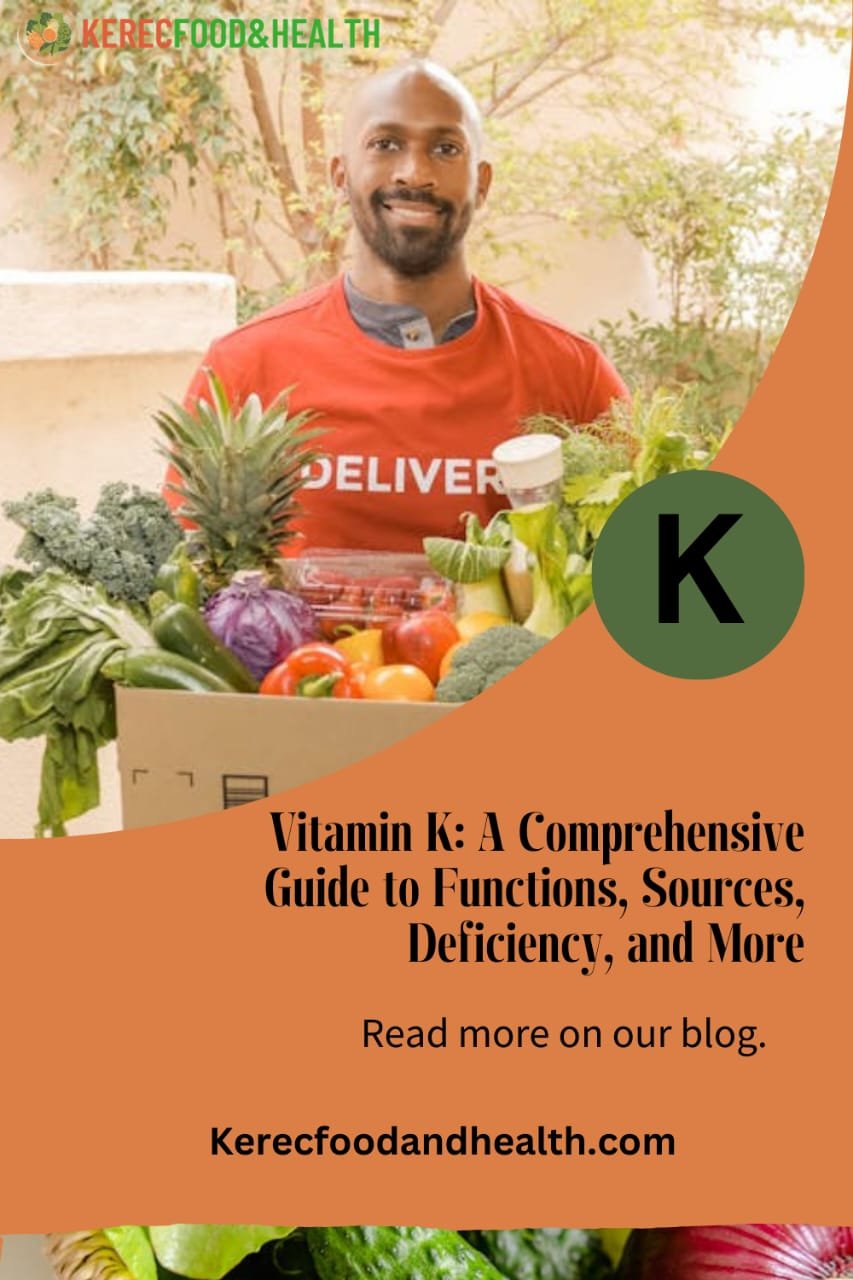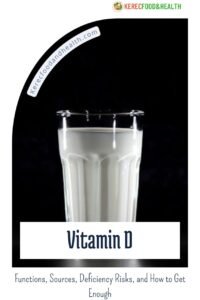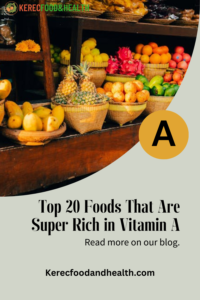Vitamin K
Vitamin K, an essential fat-soluble vitamin, plays crucial roles in blood clotting, bone health, and cardiovascular wellness. Though often overlooked, this vitamin is vital for many bodily processes. Here’s a complete guide to understanding what Vitamin K does, why it’s important, and how to ensure you get enough.
What is Vitamin K?
Vitamin K is a fat-soluble vitamin that exists in three main forms:
- Vitamin K1 (Phylloquinone): Found in plant foods, especially green leafy vegetables (e.g., spinach, kale, broccoli). It plays a significant role in blood clotting.
- Vitamin K2 (Menaquinone): Produced by gut bacteria and found in some animal-based and fermented foods, such as cheese, meat, and natto (fermented soybeans). It has several subtypes (MK-4 to MK-13) and is essential for bone and cardiovascular health.
- Vitamin K3 (Menadione): A synthetic form of Vitamin K, used in animal feed and sometimes as a supplement, though it’s not commonly used in humans due to potential toxicity in high doses.
Each form of this Vitamin contributes to health, particularly in blood clotting, bone strength, and cardiovascular support. These vitamin are essential for synthesizing proteins that regulate blood coagulation by aiding in the production of proteins that control bleeding, and maintain bone health.
Recommended Daily Intake
Adults: The recommended intake varies by age and gender but generally falls between 90-120 micrograms per day.
Children and Teens: Requirements are lower, but a balanced diet rich in leafy greens and animal products can help meet their needs.
20 Best Food Source of Vitamin K
Vitamin K is an essential nutrient that plays a vital role in blood clotting, bone metabolism, and heart health. Consuming foods rich in vitamin K1 and K2 is crucial for maintaining overall health and preventing deficiencies. In this blog, we will discuss the best 20 food sources of vitamin K and how they can benefit your body.
1. Kale
Kale is a powerhouse of nutrients, including phylloquinone. Adding a cup of kale to your diet can provide you with 547 micrograms of phylloquinone (Vitamin K1), which is equivalent to 684% of the recommended daily intake (RDI).
2. Spinach
Another leafy green that is packed with phylloquinone is spinach. One cup of cooked spinach can provide you with 888% of the RDI for vitamin K1, making it an excellent choice for meeting your daily requirements.
3. Broccoli
Broccoli is a versatile vegetable that is rich in phylloquinone. It is also a good source of dietary fiber and other essential nutrients, making it a perfect addition to any meal.
4. Brussels Sprouts
These small, cruciferous vegetables are a great source of vitamin K1. One cup of cooked Brussels sprouts contains 137% of the RDI for vitamin K1.
5. Cabbage
Cabbage is not only low in calories but also a rich source of phylloquinone. Consuming one cup of cooked cabbage can provide you with 85% of the RDI for this essential nutrient.
6. Natto
Natto is a traditional Japanese dish made from fermented soybeans. It is not only a good source of phylloquinone but also rich in beneficial probiotics that promote a healthy gut.
7. Prunes
Prunes, also known as dried plums, are not only a delicious snack but also a great source of vitamin K. One cup of prunes can provide you with 60% of the RDI for vitamin K1.
8. Asparagus
Asparagus is a nutrient-dense vegetable that is rich in phylloquinone. One cup of cooked asparagus can provide you with 66% of the RDI for this essential nutrient.
9. Turnip Greens
Turnip greens are not only a good source of phylloquinone but also rich in other essential vitamins and minerals. One cup of cooked turnip greens can provide you with 381% of the RDI for vitamin K1.
10. Collard Greens
Collard greens are a staple in Southern cuisine and are a great source of phylloquinone. Consuming one cup of cooked collard greens can provide you with 419% of the RDI for this essential nutrient.
11. Swiss Chard
Swiss chard is another leafy green that is rich in phylloquinone. It is also an excellent source of antioxidants and anti-inflammatory compounds.
12. Mustard Greens
Mustard greens are a cruciferous vegetable that is packed with nutrients, including phylloquinone. Consuming one cup of cooked mustard greens can provide you with 524% of the RDI for phylloquinone (Vitamin K1).
13. Soybeans
Soybeans are not only a great source of protein but also rich in phylloquinone. One cup of cooked soybeans can provide you with 31% of the RDI for this essential nutrient.
14. Edamame
Edamame is another type of soybean that is typically served as a snack. It is a great source of vitamin K1, with one cup providing 52% of the RDI.
15. Okra
Okra is not only a popular ingredient in many cuisines but also a rich source of phylloquinone. Consuming one cup of cooked okra can provide you with 57% of the RDI for this essential nutrient.
16. Parsley
Parsley is an aromatic herb that is commonly used to add flavor to dishes. It is also a great source of phylloquinone, with one cup providing 554% of the RDI.
17. Turnips
Turnips are a versatile root vegetable that is packed with essential nutrients, including phylloquinone. Consuming one cup of cooked turnips can provide you with 28% of the RDI for this essential nutrient.
18. Green Beans
Green beans are not only a delicious side dish but also a good source of phylloquinone. One cup of cooked green beans can provide you with 21% of the RDI for this essential nutrient.
19. Olive Oil
Olive oil is not only a healthier alternative to other cooking oils but also a good source of vitamin K1. One tablespoon of olive oil can provide you with 8% of the RDI for this essential nutrient.
20. Avocado
Avocados are a popular and delicious fruit that is rich in nutrients, including phylloquinone. Consuming one cup of raw avocado can provide you with 32% of the RDI for this essential nutrient.
In conclusion, including these 20 food sources of vitamin K1 in your diet can help you meet your daily requirements and promote overall health. Be sure to incorporate a variety of these foods into your meals to enjoy the benefits of this essential nutrient.
Functions of Vitamin K
Vitamin K is a vital nutrient that plays a crucial role in our overall health and well-being. It is essential for various bodily functions and can be found in both plant and animal sources. In this post, we will explore the top 10 functions of Vitamin K, and why it should be included in our daily diet.
1. Supports Blood Clotting
Vitamin K1, and K2 are necessary for blood coagulation. It helps in the production of certain proteins that are responsible for forming blood clots, which are crucial in stopping bleeding and promoting wound healing.
2. Maintaining Bone Health
Vitamin K1, and K2 are involved in maintaining bone health. It works by aiding in the production of a protein called osteocalcin, which is responsible for binding calcium to our bones matrix. As a result, stronger bones reduce the risk of fractures.
3. Enhances Heart Health
In addition, Vitamin K1, to K2 also plays a crucial role in maintaining cardiovascular health. It helps in preventing the buildup of calcium in our arteries, which can lead to heart diseases and other related health issues.
4. Aids in Insulin Sensitivity
Vitamin K also plays a role in regulating insulin sensitivity and blood sugar levels. It helps in the production of a protein called Gla-protein, which helps in the proper functioning of insulin and may aid in the prevention of diabetes.
5. Reduces Inflammation
Vitamin K also possesses anti-inflammatory properties. It helps modulate inflammatory responses in the body. Consequently, this function aids in reducing chronic disease risks.
6. Supports Brain Health
Furthermore, Vitamin K is essential for brain function. It helps in the production of a protein called sphingolipids, which are necessary for the development and maintenance of brain cells. This, in turn, can aid in cognitive function and may even help prevent Alzheimer’s disease.
7. Helps in Cancer Prevention
Additionally, some research suggests Vitamin K may help prevent certain cancers. It appears to inhibit the growth of cancer cells. As a result, it may play a role in cancer therapy.
8. Aids in Calcium Regulation
Furthermore, Vitamin K facilitates calcium regulation in the body. It ensures that calcium is deposited in bones rather than soft tissues. This function is crucial for overall health.
9. Improves Skin Health
Another important function of Vitamin K is its role in maintaining skin health. It is needed for the production of a protein called matrix Gla-protein, which helps in preventing the calcification of skin tissues and maintaining skin elasticity.
10. Supports Pregnancy and Lactation
Vitamin K is important during pregnancy and breastfeeding. It ensures proper development of the baby’s bones and supports maternal health.
11. Have Powerful Antioxidant Properties
Vitamin K is a powerful antioxidant that helps in protecting our cells from damage caused by harmful free radicals. This, in turn, can aid in preventing various chronic diseases and promote overall health.
12. Essential For Proper Metabolism
Vitamin K is essential for proper metabolism. It helps in the production of a coenzyme called adenosine triphosphate (ATP), which is responsible for providing energy to our cells and maintaining regular bodily functions.
13. Supports Healthy Liver Function
Furthermore, Vitamin K also supports healthy liver function. It helps in the production of proteins that aid in the breakdown and removal of excess fats from the liver, helping to prevent liver diseases such as fatty liver.
14. Maintains Healthy Vision
Vitamin K is necessary for maintaining healthy vision. It helps in the production of a protein called MGP, which prevents the buildup of calcium in the eye tissues and may help in preventing age-related macular degeneration.
In conclusion, Vitamin K is a vital nutrient with numerous functions that are essential for our overall health. From blood coagulation to skin health, bone maintenance to insulin regulation, Vitamin K has a wide range of benefits that make it an important addition to our daily diet. So make sure to include Vitamin K-rich foods such as leafy greens, broccoli, eggs, and fish in your meals to reap its many benefits.
Vitamin K Deficiency
Vitamin K deficiency is uncommon in healthy adults but can lead to serious health issues when it does occur. This essential vitamin is crucial for blood clotting, bone health, heart function, and other vital processes, so insufficient levels may result in a range of symptoms and health risks. Here’s what to know about Vitamin K deficiency and its effects.
Symptoms of Vitamin K Deficiency
1. Excessive Bleeding
One of the earliest and most common signs is abnormal bleeding, which can occur from minor cuts, wounds, or even spontaneously. Individuals with a Vitamin K deficiency might experience frequent nosebleeds, bleeding gums, or heavy menstrual bleeding.
2. Easy Bruising
People with low levels of Vitamin K may bruise easily, as their blood doesn’t clot as it should. Even a slight bump or knock may cause a significant bruise.
3. Bone Weakness
Over time, insufficient Vitamin K can lead to weakened bones and a higher risk of fractures, as Vitamin K is critical for bone formation and calcium binding. Low Vitamin K levels can contribute to osteoporosis and poor bone density.
4. Blood in Stool or Urine
Unexplained blood in the stool or urine could be a sign of internal bleeding caused by low Vitamin K levels, which may be difficult to detect without medical evaluation.
Causes of Vitamin K Deficiency
1. Inadequate Dietary Intake
While rare, some individuals may not consume enough Vitamin K through food. Leafy greens, broccoli, Brussels sprouts, and certain oils are rich in Vitamin K, but without these, deficiency risks increase.
2. Poor Absorption
Conditions affecting fat absorption, like Crohn’s disease, celiac disease, or chronic pancreatitis, may hinder the body’s ability to absorb Vitamin K. Since Vitamin K is fat-soluble, adequate fat absorption is essential.
3. Certain Medications
Medications such as antibiotics, blood thinners, and bile acid sequestrants can interfere with Vitamin K1 and K2 absorption or metabolism, leading to lower levels in the body.
4. Newborns and Vitamin K Deficiency
Newborns are at a higher risk of deficiency because they have limited Vitamin K 1 and K2 stores at birth, and breast milk contains low levels. Many hospitals administer a Vitamin K3 shot to newborns to prevent bleeding complications.
Health Risks of Vitamin K Deficiency
1. Hemorrhagic Disease
In severe cases, Vitamin 1 and K2 deficiency can lead to hemorrhagic disease, especially in newborns. This condition causes spontaneous bleeding and can be life-threatening if untreated.
2. Osteoporosis and Bone Fractures
Low Vitamin K1 and K2 levels can impair bone strength and increase the risk of fractures over time. A lack of Vitamin K disrupts the production of osteocalcin, a protein essential for bone health.
3. Cardiovascular Issues
Since Vitamin K1 and K2 helps prevent calcium buildup in arteries, a deficiency may contribute to calcification and increase the risk of cardiovascular diseases.
Preventing Vitamin K Deficiency
For most people, consuming a diet rich in Vitamin K1 and K2 from green leafy vegetables, vegetable oils, and certain fruits can help maintain healthy levels. For those with absorption issues, a healthcare provider may recommend supplements or an injection.
In summary, Vitamin K1 and K2 is a vital nutrient with crucial roles in clotting, bone health, and cardiovascular function. Staying aware of deficiency signs and risks ensures that Vitamin K remains at optimal levels to support overall health.
Who is at Risk of Vitamin K Deficiency?
1. Newborns:
Newborns have limited Vitamin K stores and may receive a Vitamin K shot at birth to prevent bleeding complications.
2. People with Absorption Issues:
Conditions like Crohn’s disease, celiac disease, or chronic pancreatitis can reduce Vitamin K absorption.
3. Individuals on Certain Medications:
Blood thinners (e.g., warfarin) can interact with Vitamin K, so these patients should monitor intake carefully.
Can You Have Too Much Vitamin K?
Excessive Vitamin K1 and K2 from natural food sources is rare and generally not harmful. However, those on blood-thinning medication should avoid high doses from supplements without medical advice, as it may interfere with their treatment.
Tips for Maximizing Vitamin K Intake
1. Eat Leafy Greens Regularly: Incorporate kale, spinach, or broccoli into your meals daily for a consistent source of Vitamin K1.
2. Include Fermented Foods: Foods like natto and sauerkraut are rich in Vitamin K2, supporting both bone and cardiovascular health.
3. Consider Supplements (if needed): For those with dietary restrictions or absorption issues, a Vitamin K3 supplement might be recommended. Consult a healthcare provider for guidance.
Side Effects of Vitamin K: What You Need to Know
Firstly, phylloquinone is generally safe for most people when consumed through food, but high doses from supplements or injections may lead to side effects. Though rare, knowing these possible side effects can help you understand and manage Vitamin K1, K2, and K3 intake.
Allergic Reactions
To start, some people experience allergic reactions. These reactions may include itching, rash, or swelling, especially after a Vitamin K3 injection. In severe cases, this can escalate to anaphylaxis, a life-threatening reaction requiring immediate medical attention.
Interfere With Certain Medications
Moreover, high doses of Vitamin K3 can interfere with certain medications. For instance, it can reduce the effectiveness of blood-thinning drugs like warfarin, potentially leading to blood clots. Therefore, anyone on blood thinners should consult a doctor before using Vitamin K3 supplements.
Digestive Disorder
Additionally, Menadione supplements may cause stomach upset. Symptoms like nausea, cramps, or diarrhea might occur in sensitive individuals, especially if taken on an empty stomach.
Liver Problem
In some cases, liver issues might arise. Although rare, excessive intake could place strain on the liver, as the organ metabolizes this vitamin. Regularly consuming high doses should be avoided to protect liver health.
Affect Blood Sugar Levels
Furthermore, Vitamin K may affect blood sugar levels. Some studies suggest that it could interfere with insulin activity, so those with diabetes should approach supplementation with caution and seek medical advice.
Pregnancy and Breastfeeding Women
Finally, pregnant and breastfeeding women should use Vitamin K carefully. Though it’s essential for newborn health, high doses may not be safe for pregnant or breastfeeding women unless prescribed by a doctor.
In conclusion, while Vitamin K1 and K2 are essential for many bodily functions, moderation is key. By balancing intake and consulting healthcare professionals when necessary, you can enjoy the benefits of Vitamin K while avoiding potential side effects.
Final Thoughts
Vitamin K is vital for blood health, bone strength, and overall wellness. By incorporating a balanced diet rich in both Vitamin K1 and K2, you can ensure you’re supporting these essential functions naturally. Whether through leafy greens, fermented foods, or supplements when necessary, maintaining adequate Vitamin K levels can lead to long-term health benefits.





